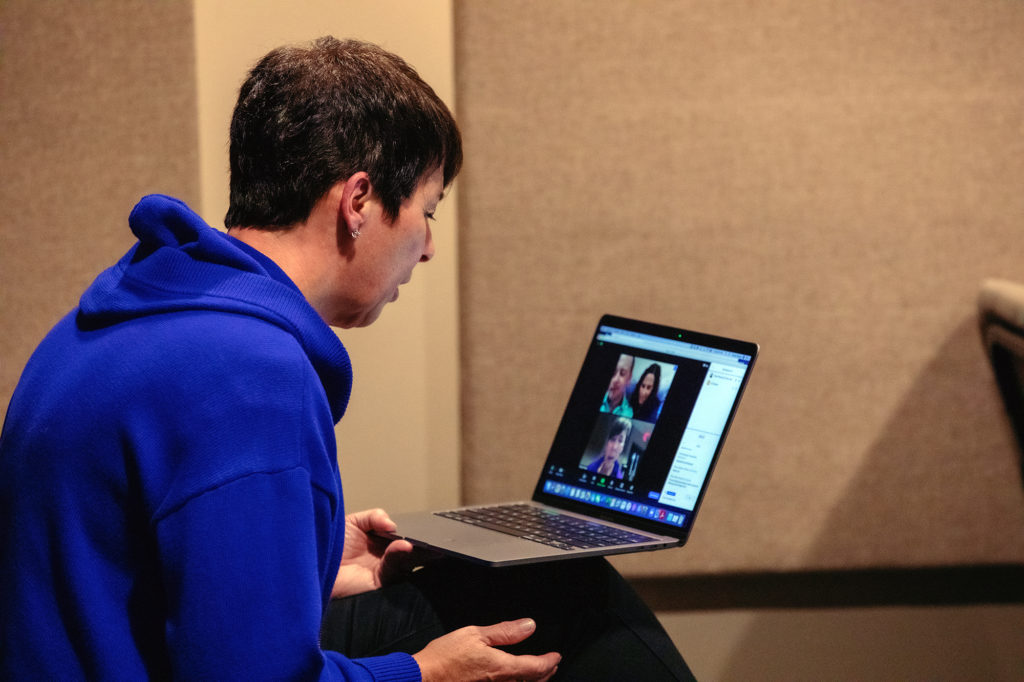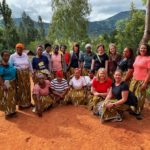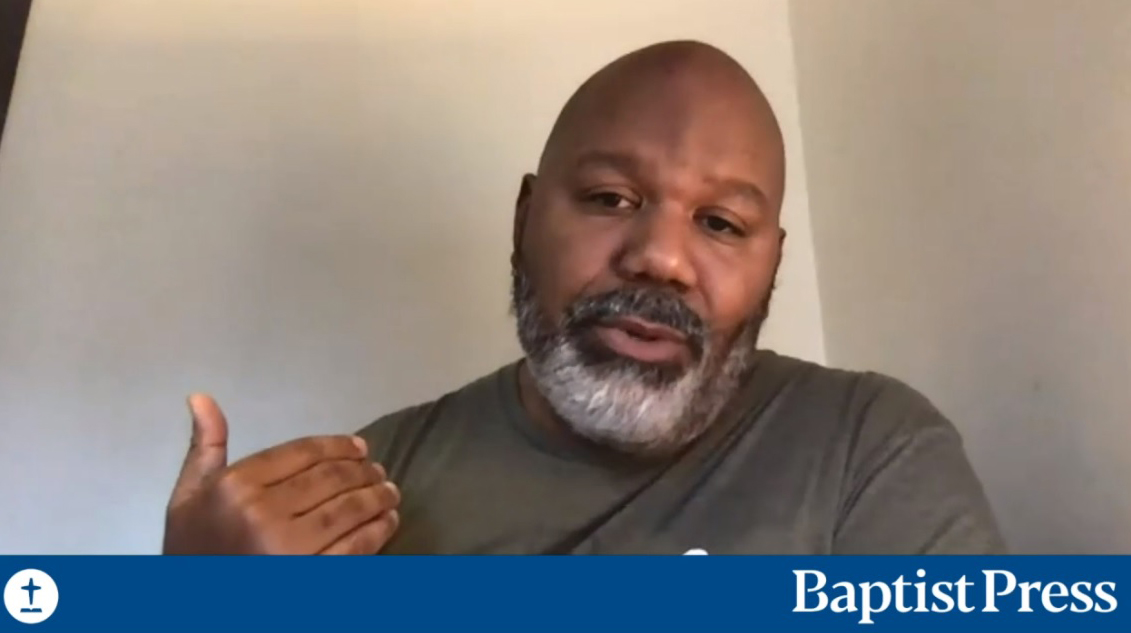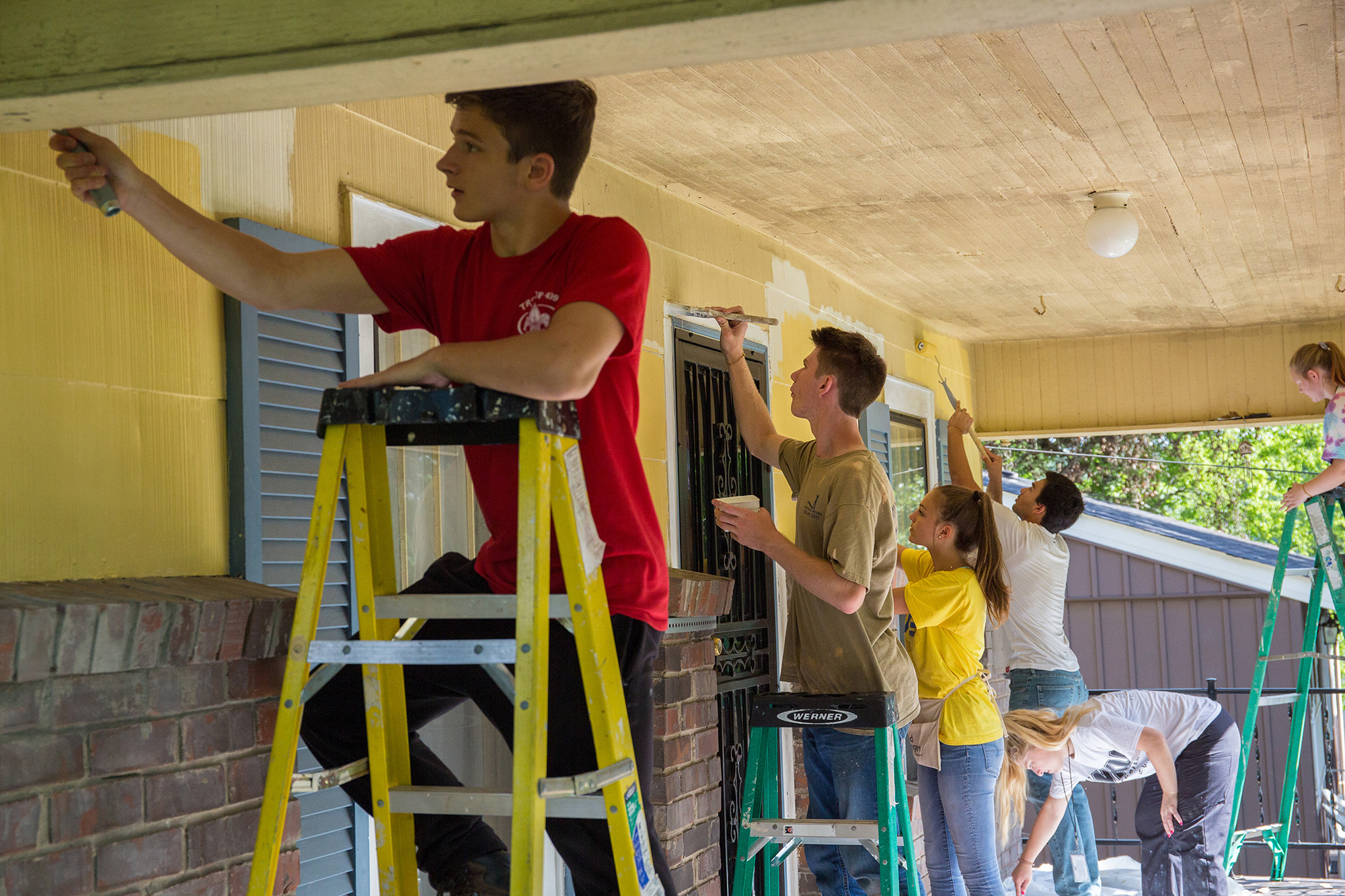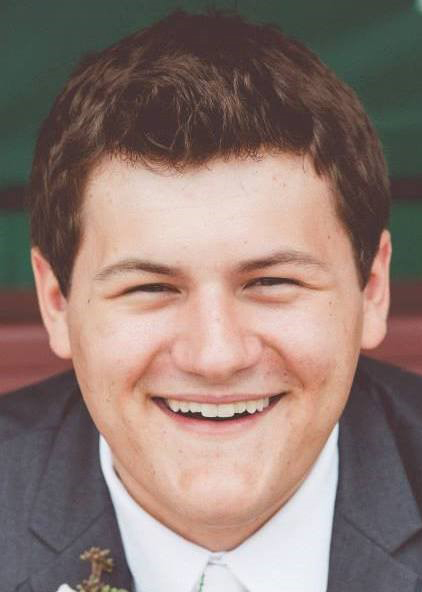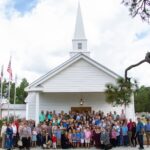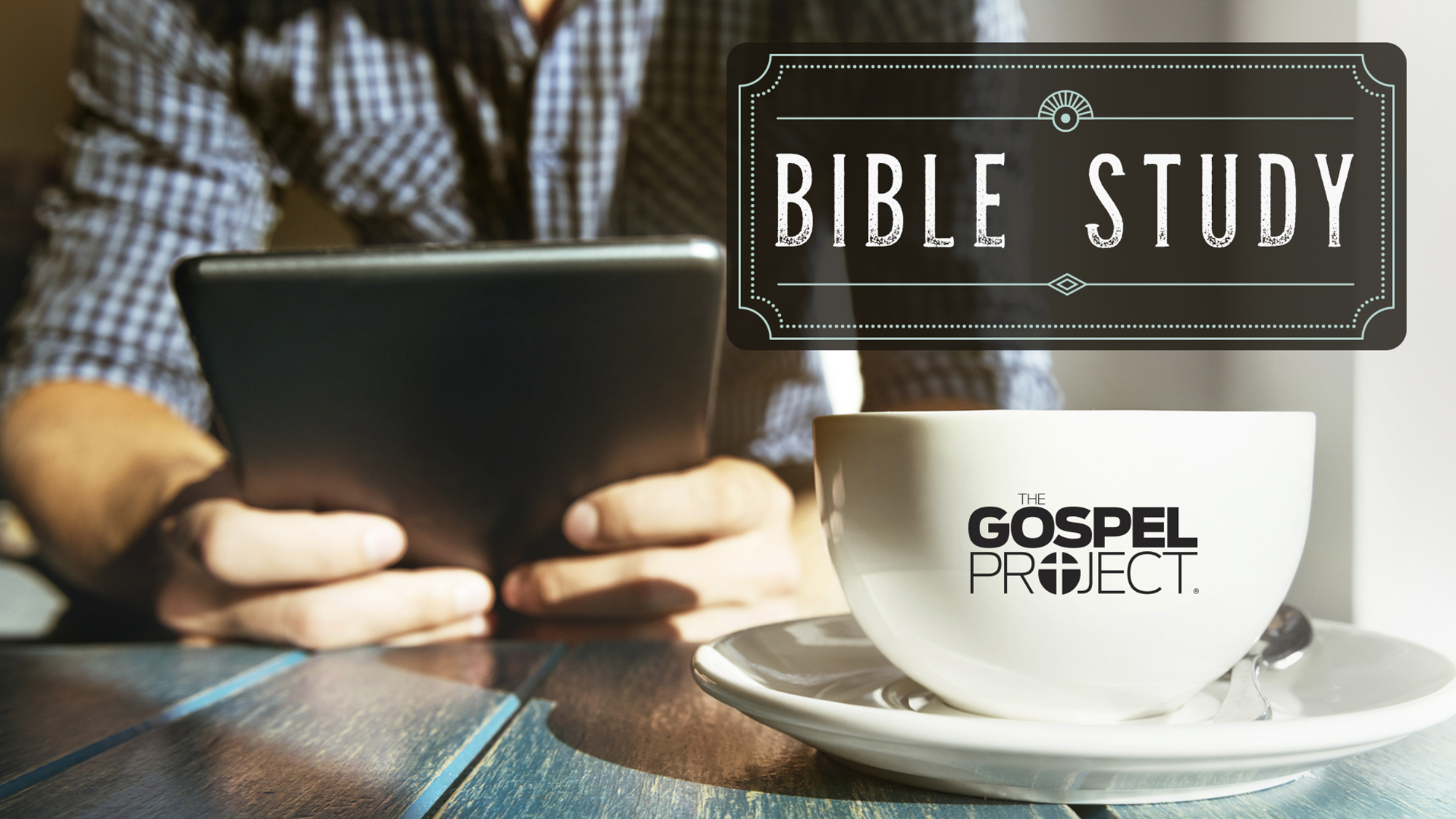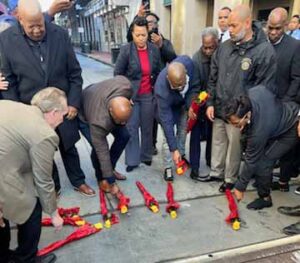
HENDERSONVILLE, Tenn. (BP) – Since Long Hollow Baptist Church began experiencing what Pastor Robby Gallaty calls “a genuine move of God” last month, some 283 people have travelled to its Tennessee campus from all over the country to be baptized.
The most recent group came forward – some scheduled, others spontaneously – at the church’s first Tuesday prayer service Jan. 19, which lasted more than two hours. Twenty-two more are signed up for baptism this coming Sunday (Jan. 24), the first time Long Hollow will have worshiped in person in a month.
The path for many didn’t originate in north Tennessee. Like an overwhelming number of churches, Long Hollow has increased its online capabilities over the last year due to COVID-19. During its current revival, baptismal candidates have included brothers – one in Montana, the other in North Carolina; a woman who drove from Tampa, Fla.; a man from Memphis; and a couple who traveled 100 miles from Kentucky. One man who lived down the street from Gallaty when the two were children started watching online and drove to Hendersonville from New Orleans to be baptized. In another instance, a former Satan worshiper brought his friend, who soon joined that label of “former” Satan worshipper. All became familiar with Long Hollow initially through a screen.
“It’s a new day for technology and we’re trying to figure out how to use it for God’s glory,” Gallaty said.
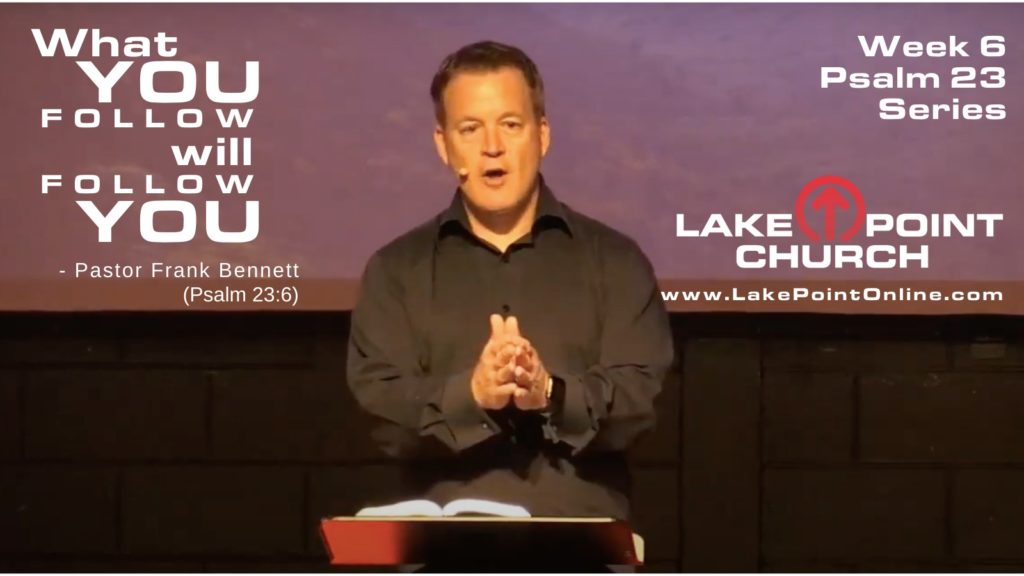
Theories abound on the impact COVID-19 will have on the Church. In mid-March, thousands of congregations jumped to online-only services seemingly all at once. And while many of those began meeting in person within a few months, the online option remained. For many others, gathering exclusively in a digital format has remained the only viable option.
Online church shows no signs of going away. The degree to which it will occupy a church’s regular ministry, however, remains in question.
An August study released by Pew Research shared that few Americans expect their worship routines to permanently change due to COVID. Among all U.S. adults, 43 percent said they didn’t attend church before and won’t be attending after the pandemic. On the other hand, 42 percent said they would attend just as much. Meanwhile, 10 percent said they would attend in-person services more often than before while 5 percent they would attend less.
Among those who responded in a 2019 survey that they attend church services at least once a month, 36 percent said they would continue to attend online about as often as they did before the pandemic. Twenty-three percent indicated they would forgo digital worship to return to the church building while 13 percent said they would participate in online worship more often.
“Of course,” the report concluded, “it is impossible to predict how behavior will actually change after the pandemic, particularly if it extends further into the future than people expect. But, at the moment at least, very few U.S. adults anticipate substituting virtual participation for physical attendance at their church or other house of worship.”
Where the Pew study may be outdated is that more churches are now using those online capabilities for more than sharing a worship service. At Long Hollow, Gallaty credits the church’s online pastor, Andrew Bolton, with facilitating digital prayer gatherings and providing discipleship growth for longtime members as well as those recently baptized.
Lake Point Church in Emerson, Ga., averaged 115 in weekly attendance pre-COVID. Now, there are approximately 85 each Sunday worshiping in the cafeteria of Red Top Middle School, socially distanced with masks optional.
Pastor Frank Bennett said that in addition to those continuing to gather in person, several have decided to watch the services online. But having a better connection to the church’s mission, he maintains, requires more and is one of the reasons Lake Point is currently in the process of hiring an online pastor.
That role, Bennett explained, will be to make sure those members still get a measure of community and discipleship at Lake Point.
“An in-person service has your core group and then other ‘outward’ groups that go all the way to those who show up one time,” he said. “Right now, we and other churches are treating online services as where people show up, watch and leave. It’s almost like a storefront. They peek in the window, then move along.
“With the online campus, we want to define these groups. Our core group with the online church are those members we know watch every week. We encourage that core group to get plugged in to an online small group so they can build a sense of community.
“Showing up at church – in any format – is not community. You build community [sitting] in circles, not rows.”
In mid-2019 Gallaty led Long Hollow to begin a 24/7 prayer ministry. That focus on prayer increased in intensity during the early days of the COVID shutdown, when Gallaty spent the extra cooped-up hours not binge-watching Netflix or learning TikToK dances but in prayer. That prayer emphasis has remained an important part of the current season of renewal at Long Hollow.
“Tuesday’s prayer meeting had some music but no sermon,” he said of the event that can be joined on Tuesdays at 6:30 CST by anyone with an internet connection. “We’re trying to help people enter into the presence of God through humility, confession of sin, asking for more of God in their life and forgiveness. We also have a one-on-one prayer line where intercessors are lined up along the wall of the worship center. As people feel led of the Lord, they go to those intercessors, are anointed with oil and prayed over.”
Meanwhile, online participants are connected via Zoom and then placed into individual online prayer “rooms” with a volunteer. From that point, they may join one of the numerous discipleship groups Long Hollow has in other cities such as Chattanooga or St. Louis.
Gallaty said that among those who have traveled to Long Hollow to be baptized, some have stayed to become members. Others have gone back to their cities or towns, but not without being placed in the church’s discipleship pipeline.
Bolton served as one of Long Hollow’s student ministers before the switch to his current position in August. He admitted his view regarding online worship may be controversial, but must be considered in a world where five friends consider it perfectly normal to play an online video game while scattered across the country, if not the world.
“Others may disagree, but I’d say online church is just as meaningful as it is in person,” he said.
“I had to shift my thinking to what church really is. It’s the gathering of a body of believers. People gather online all the time now, like on Facebook. Why can’t we redeem those types of platforms and be the body of believers as well?”
